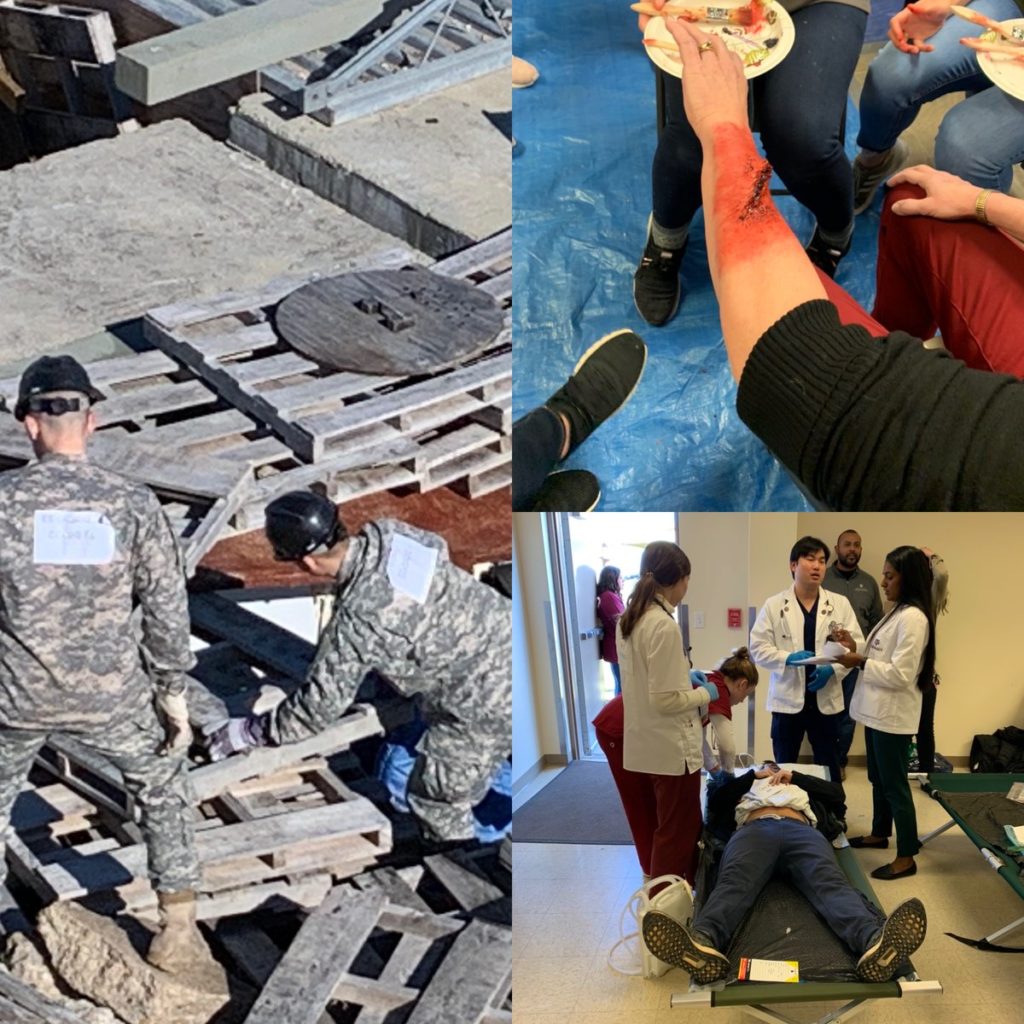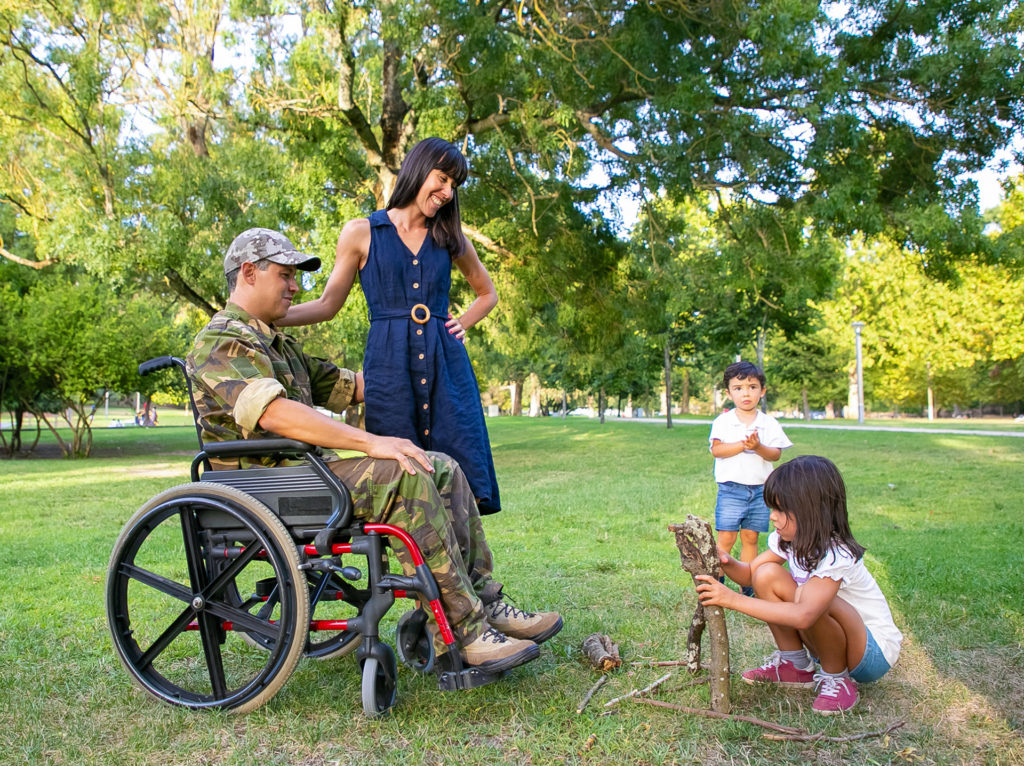While May has been designated by Congress as Military Appreciation Month, it has also been designated a month of appreciation for those who care for current and former military service members.

“May has also been designated the Month of the Military Caregiver, which gives us a specific opportunity to also show our appreciation for the more than 5 million people in the U.S. who serve as military caregivers,” said Rachel Brauner, Texas A&M AgriLife Extension Service program specialist, Bryan-College Station. “These individuals provide care for more than 2 million veterans and are an important part of supporting our service members and their families.”
A military caregiver is a family member, friend or acquaintance who provides or manages the care and assistance for a current or former military service member.
Along with taking care of wounded or injured family members, many military families care for children with special needs and other dependents, which amplifies the need to support those who care for others.
“Military caregiving, much like caregiving for the population in general, touches many more families than what you may see on the surface,” Brauner said. “Providing support and services for service members, veterans and caregivers is a serious challenge, especially among the wounded warrior and special needs communities.”
Brauner said AgriLife Extension is showing its appreciation for and recognition of the importance of the military caregiver by providing education for professionals serving wounded service members, veterans and their caregivers.
“Military caregivers provide help for a broad range of physical and mental illnesses and injuries, and in many instances provide relief and support for other members of the military family,” Brauner said. “Ensuring the necessary care for wounded, ill and injured service members is an important component of America’s commitment to its military services. A large portion of this care depends on those military family caregivers. We provide education and support for those caregivers and the professionals who work with them.”
The Military Families Learning Network
The Military Families Learning Network, or MFLN, engages military family service providers with educators from the nation’s land-grant universities in the exchange of experiences and research to enhance their impact and encourage their professional growth. It combines innovative online professional development, social learning and sharing, and the research-based and experiential resources of the Cooperative Extension system.
“The MFLN is one aspect of our agency’s Military Program, which focuses on providing educational programs and resources to assist veterans, service members and their families as they face the many uncertainties of life,” said Stephen Green, Ph.D., AgriLife Extension specialist and head of the agency’s Family and Community Health Unit. “Our goal is to help bridge the gap between building support systems and providing quality education, services and care to military communities. Teams of faculty and staff from several universities work collaboratively to encourage issue-driven, learner-centered, collaborative programming.”

Green said AgriLife Extension’s role within MFLN focuses on identifying professional development opportunities for professionals working with family caregivers of wounded service members as well as those caring for individuals with special needs.
“The network provides educational support through innovative technologies such as interactive web conferencing and online learning modules,” he explained. “We engage subject matter experts and professionals to identify needs of the caregiving community through formal and informal means and provide education on issues related to caregiving. This is done through quality, reliable programming developed from listening and responding to caregiver needs.”
Brauner said through this network, faculty members with AgriLife Extension and other land-grant universities have partnered to provide continuing education and professional development opportunities through online learning platforms, including interactive webinars. Some of the webinar topics presented through this collaborative effort include improving veteran access to social services, Medicare updates, aging with disabilities, working with difficult clients, ethical decision-making in caregiving and establishing professional boundaries.
Additional outreach to military caregivers
Brauner and Andy Crocker, AgriLife Extension statewide program specialist in gerontology and health, Amarillo, also present a six-week “Powerful Tools for Caregivers” educational program designed to help family caregivers take care of themselves while caring for a relative or friend.
This program addresses a number of self-care tools for military caregivers, including reducing personal stress; changing negative self-talk; communicating needs to family members and healthcare or service providers; adapting effectively in challenging situations; recognizing the messages in their emotions, dealing with difficult feelings; and making hard caregiving decisions.
“Caring for a family member or friend with a chronic condition can be physically, emotionally and financially draining,” Brauner said. “This highly effective, evidence-based, self-care educational program for family caregivers helps them build the skills they need to take better care of themselves as they provide care for others.”
Military caregivers are an extremely important but often overlooked and underappreciated segment of the population, Green said.
“If you know of a caregiver for a wounded warrior or veteran, this month provides a special opportunity to reach out and let them know we appreciate all the sacrifices they have made to care for those who have also sacrificed so much.” –


